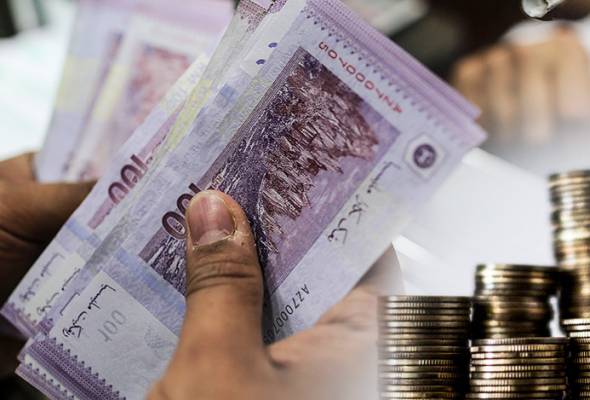
Published in Astro Awani, image by Astro Awani.
Former prime minister Datuk Seri Najib Razak made it looked that easy for parliament to be convened in two steps – Step one: send a notice to the speaker to convene Parliament. Step two: sitting is in session.
Najib was saying this from experience when on July 18, 2014, as a former prime minister, he announced an emergency parliamentary meeting to be convened to debate a motion on the tragic downing of Malaysia Airlines flight MH17.Although he didn’t specify a date for the emergency parliamentary meeting in the announcement, the secretary of the Parliament had indeed issued a notice on the same day to the MPs that a special meeting of the Parliament would be held for one day on July 23, 2014 to debate the motion – a five-day notice or rather a three-working day notice.
This is in line with the Dewan Rakyat Standing Order 9(2)(a), which states in cases of urgency as may be determined by the Speaker in which the 28-day notice may be dispensed with, and in that event “the longest notice possible (five days in this case) shall be given.
”But Najib seems to conveniently forget the circumstances then and now are different. Back then, there wasn’t an Emergency.
One critical factor missing in the minds of those who advocate the convening of parliament in July is the legal consideration that the current emergency regulation provides for the suspension of parliament during the entire period of the emergency – from Jan 11 to August 1.Under Section 14 (1a) of the Emergency Ordinance 2021, it is stated that for so long as the emergency is enforced, the provisions relating to the summoning, proroguing and dissolution of Parliament in the Federal Constitution shall not have effect.
Thus, this section has to be removed or deleted first before Parliament can be convened in July. Deleting this section, however, has the implicit effect of lifting the emergency earlier than August 2.Supposing the Emergency is lifted on August 2, the earliest Parliament can be reconvened is August 5, following the precedent set by Najib.
A brilliant idea to have a parliamentary sitting in July was mooted by legal expert Hafiz Hassan in his article, “One-day national conciliation parliamentary sitting” published by the Malay Mail.
The gist of his proposal is Parliament need not sit with all MPs present because a quorum under Standing Order 13(1) – 26 members – suffices. This requires both sides of the aisle – Government and Opposition – to a conciliatory agreement on who from each side to attend.
This parliamentary sitting can then debate a motion on national conciliation.
What makes this idea appealing is it assuages the concern of the government on the spread of Covid-19 because the number involved is 26.The downside, however, is still the legal impediment of Section 14 (1a) of the Emergency Regulation which does allow for Parliament not to be convened during the entire period of the Emergency.
But what, instead of calling this small sitting of MPs a parliamentary session, we call it a meeting of the special select committee of parliament on national reconciliation. The Emergency Regulation does not explicitly prohibit a meeting of a parliamentary select committee.
And even in normal time, a parliamentary session and a meeting of a parliamentary select committee are two different things. When a parliamentary session is held, its select committee must not meet at the same time because this will prevent MPs from attending the more important parliamentary session.
So, there is an obvious difference between a parliamentary session and a meeting of its select committee so that we can conclude the suspension of parliament during Emergency refers to the convening of a parliamentary session and not a meeting of its select committee.
If this is agreed, then a special select committee of parliament comprising 26 MPs chaired by the Speaker can be convened in July to discuss national reconciliation in matters concerning the spread of Covid-19 and the government’s proposal for a hybrid session of Parliament to be convened.
And as rightly pointed out by Hafiz, it’s for the prime minister to make the call for a one-day meeting of this special select committee.
Jamari Mohtar is Director, Media & Communications at EMIR Research, a think tank focused on strategic policy recommendations based on rigorous research

